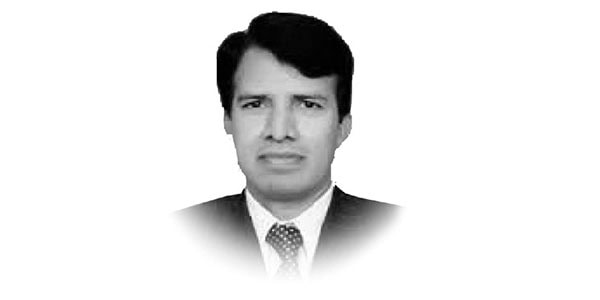Traditional security challenges and Pakistan
CONCEPTUALLY, the traditional security issues are about two essential values of the state; the territorial integrity and the sovereignty of the state.
Both are intertwined and must be respected for a broader regional and international peace. From the perspective of realists’ school of thought of international relations, security is the basic requirement of every nation and state is the basic unit of the international system.
The impact and prevalence of realism remained quite visible during the peak days of the Cold War where for almost half a century, major world powers maintained a balance of power under bi-polar system.
As evident from its nomenclature, the traditional security is part of long-established traditions in which weapons, armaments, war munitions and the military power have been its essential tools.
Nevertheless, political engagement and diplomatic means like pacts and alliances also played a role towards this balance of power.
Over the years, these means, as well as the essence of traditional security have been constantly evolving under the impact of technological advancements, innovations, new ideas and political advancements.
Today, in the 3rd decade of 21st century, three areas are considered essential to shape the security agenda of states.
One, United Nations and its organs are responsible for the maintenance of international peace and security which also aims at security of nation state.
In the past 30 years, recourse to multilateral peace operations has been increasing, and, major states like China and European Union have been directly involved in the advancement of the principles, rules, and mechanisms of multilateralism.
Two, a new form of security cooperation is gaining momentum at the regional level, complementing and gradually overcoming the tried and tested form of military alliances.
The concept is still evolving and believed to form regional alliance which may or may not play a role for the wider international peace.
QUAD is one such military alliance, which is considered “Asian NATO” in a recently held meeting at Tokyo, Japan clearly warned China against its regional influence in the Asia-Pacific region especially South China Sea.
The member states of QUAD decided to launch a maritime initiative to combat illegal fishing by China and to sop its growing regional influence.
QUAD will be making an investment of $50bn for the development of infrastructure in the wider Asia-Pacific which is being renamed by US and India as Indo-Pacific.
Three: Weapons and armaments as a mean of traditional security are more advanced than in the previous history of mankind.
The nuclear weapons and its delivery system have added the most dangerous trends to this form of security.
Any accidental use of nuclear weapons may cause huge loss to human beings and infrastructure.
The realist scholars considered that there is a false promotion of International Institutions, since over the years; these institutions serve the purpose of a selected few.
It is worth mentioning that ever since the Cold War ended, Western policymakers have sought to create security arrangements in Europe, as well as in other regions of the world, that are based on international institutions.
In doing so, they explicitly reject balance-of-power politics as an organizing concept for the post-Cold War world.
Former US President, Bill Clinton once said, “In a world where freedom, not oppression, is on the march, the cynical calculus of pure power politics simply does not compute; a rejection of classic balance of power.
Indeed, the UN and other international institutions “served the West well” not the rest of the world.
The neo-classical realists considered the Russia-Ukraine as a return of conventional warfare, adding a new dimension of conventional security for the smaller states.
This war has many dimensions, depending upon its outcome; a return of cold war model with Russia back to its former status (Soviet Union) while projecting NATO as its staunch rival or else losing the deterrence as a resurgent power for ever.
While the major powers are struggling to secure their strategic objective, there is a bigger risk to the sovereignty and integrity of smaller states from the perspective of traditional security.
In the case of Pakistan, its security is still military-oriented due to historical and geopolitical factors.
This tendency towards traditional threats resulted in a scenario where Pakistan was confronted with traditional threats from its rival India which did not end despite passage of seven decades.
Rather there has been increase in the security threats from western borders. Besides, the state and society of Pakistan are facing new security challenges like terrorism and sub-nationalism as an outcome or consequence of traditional security.
The traditional security threats of Pakistan are emanating from two main factors: Kashmir dispute and water issues.
Pakistan and India had three full-fledged wars and a limited war in the form of Kargil Conflict of 1999 over Kashmir.
Unfortunately, there is no clear policy to tackle with both significant issues since stakeholders are power hungry rather having any interest to resolve issues of national interest.
Owing to bad governance and internal rifts for gaining power, Pakistan’s ruling elite did not assess the challenges posed by the traditional security.
Consequently, there is a simultaneous downfall of economy, polarization among masses, development of new fault-lines and severe leadership crisis in the country.
All these factors are adding the security challenges for the state of Pakistan. The country needs a very prudent and farsighted leadership to tackle with the challenges of traditional and non-traditional security.
— The writer is Professor of Politics and IR at International Islamic University, Islamabad.










